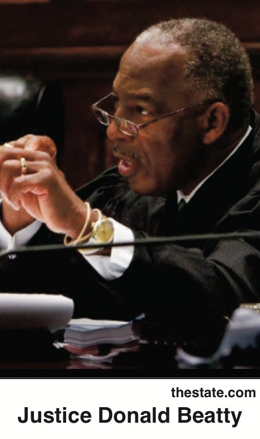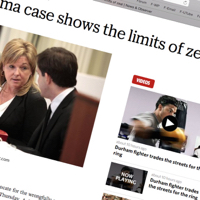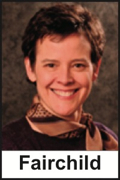Rascals case in brief
In the beginning, in 1989, more than 90 children at the Little Rascals Day Care Center in Edenton, North Carolina, accused a total of 20 adults with 429 instances of sexual abuse over a three-year period. It may have all begun with one parent’s complaint about punishment given her child.
Among the alleged perpetrators: the sheriff and mayor. But prosecutors would charge only Robin Byrum, Darlene Harris, Elizabeth “Betsy” Kelly, Robert “Bob” Kelly, Willard Scott Privott, Shelley Stone and Dawn Wilson – the Edenton 7.
Along with sodomy and beatings, allegations included a baby killed with a handgun, a child being hung upside down from a tree and being set on fire and countless other fantastic incidents involving spaceships, hot air balloons, pirate ships and trained sharks.
By the time prosecutors dropped the last charges in 1997, Little Rascals had become North Carolina’s longest and most costly criminal trial. Prosecutors kept defendants jailed in hopes at least one would turn against their supposed co-conspirators. Remarkably, none did. Another shameful record: Five defendants had to wait longer to face their accusers in court than anyone else in North Carolina history.
Between 1991 and 1997, Ofra Bikel produced three extraordinary episodes on the Little Rascals case for the PBS series “Frontline.” Although “Innocence Lost” did not deter prosecutors, it exposed their tactics and fostered nationwide skepticism and dismay.
With each passing year, the absurdity of the Little Rascals charges has become more obvious. But no admission of error has ever come from prosecutors, police, interviewers or parents. This site is devoted to the issues raised by this case.
On Facebook
Click for earlier Facebook posts archived on this site
Click to go to
Today’s random selection from the Little Rascals Day Care archives….
Click for earlier Facebook posts archived on this site
Click to go to
Today’s random selection from the Little Rascals Day Care archives….
The unenlightened self-interest of prosecutors
 May 16, 2014
May 16, 2014
Exhibit A:
“Last year at a state solicitors’ convention in Myrtle Beach, (South Carolina State Supreme Court Justice Donald Beatty) cautioned that prosecutors in the state have been ‘getting away with too much for too long.’ He added, ‘The court will no longer overlook unethical conduct, such as witness tampering, selective and retaliatory prosecutions, perjury and suppression of evidence. You better follow the rules or we are coming after you and will make an example. The pendulum has been swinging in the wrong direction for too long and now it’s going in the other direction. Your bar licenses will be in jeopardy. We will take your license’….
“If most prosecutors are following the rules, you’d think they’d have little to fear, and in fact would want their rogue colleagues identified and sanctioned….The state’s prosecutors didn’t see it that way….
“At least 13 of the head prosecutors in the state’s 16 judicial districts, along with South Carolina Attorney General Alan Wilson, are asking for Beatty to be recused from criminal cases. This would presumably end his career as a state supreme court justice….”
– From “Judge says prosecutors should follow the law. Prosecutors revolt.” by Radley Balko in the Washington Post (March 7)
Exhibit B:
“….Decades of studies show eyewitness testimony is only right about half the time – a reality that has prompted a small vanguard of police chiefs, courts and lawmakers to toughen laws governing the handling of eyewitnesses and their accounts of crimes….
“Prosecutors, however, have opposed the efforts, arguing that the changes erode their powers, even as studies have shown that eyewitnesses are about half as likely to choose the correct suspect out of a lineup as they are to choose some combination of the innocent fillers or no suspect at all when the correct one is present. The reexamination of eyewitness testimony comes at a time when technology and other forensic analysis are being given greater weight….”
– From “Eyewitness Testimony No Longer A Gold Standard” by Nigel Duara of the Associated Press (April 19, 2014)
TV prosecutor Jack McCoy suffered his own ethical dark nights of the soul, but I can’t imagine him finding much in common with such miscreants as these.
Separate disciplinary panel needed for prosecutorial excesses

newsobserver.com
Online version of editorial.
Jan. 20, 2016
“The Jan. 15 editorial ‘The limits of zeal’ contrasted the penalty given Christine Mumma with the absence of rebuke to prosecutors for the ‘massive failure’ that kept her client wrongfully imprisoned for more than 36 years.
“It is not enough simply to point out this shameful disparity. The public embarrassment resulting from the hearing should move the North Carolina State Bar to empower a separate disciplinary panel to deal only with prosecutorial excesses. Such a panel would not lack for business.”
– From “A Panel for Prosecutors,” my letter to the editor of the News & Observer (Jan. 19) (text cache)
![]()
‘Long history of panic’ extended to day-care cases
 Feb. 6, 2013
Feb. 6, 2013
“Panic provides a rationale for action, sometimes overreaction or even manipulation. As such, it is the subject of heated accusation and denial that can create a swirl of confusion and frustration.
“Nonetheless, some lessons stand out in the long history of panic. There is no basis for imagining that the frenzied 19th century reactions to disease are a slumbering beast waiting to be roused. Too much government infrastructure and information stand between populations and unfettered panic….”
– From “A Brief History of Panic” by Amy L. Fairchild, David Merritt Johns and Kavita Sivara Makrishnan, public health researchers at Columbia University (the New York Times, January 28, 2013)
“Frenzied…. reactions” to disease epidemics may have subsided since the 19th century, but they were crucial in animating the day-care ritual-abuse prosecutions of the 1980s and ’90s. And “government infrastructure” – that is, district attorneys’ offices – wasn’t a deterrent but an accelerant!
‘What may be the largest child sexual abuse trial this country has ever seen’
July 22, 2016
“FARMVILLE, N.C. – Farmville’s only courtroom has never played host to a felony trial. This week, the town’s 4,000 residents will watch a parade of jurors, lawyers, psychologists, parents and children converge on that courtroom. There, they will unfold what may be the largest child sexual abuse trial this country has ever seen: the trial of Robert F. Kelly Jr. of Edenton.
 “The trial was moved to this one-blink community in Pitt County, 65 miles west of Edenton in Eastern North Carolina, because of pretrial publicity.
“The trial was moved to this one-blink community in Pitt County, 65 miles west of Edenton in Eastern North Carolina, because of pretrial publicity.
“But the spotlight will find Farmville, if not for the unprecedented number of sexual abuse indictments, then for the sordid nature of the charges. And if not for that, then for the impact the trial – expected to last three to four months – could have on future large-scale child-abuse prosecutions.
“Jury selection is scheduled to start today….”
– From “Witnesses, jurors, lawyers mass for sexual-abuse trial” by Knight-Ridder News Service in the Baltimore Sun (July 22, 1991)
In fact, the trial would last nine months, not three or four. Although prosecutors won initial convictions of both Kelly and Dawn Wilson, for whatever reasons – surely including the eye-opening effects of Ofra Bikel’s “Innocence Lost” trilogy – the nation was spared “future large-scale child-abuse prosecutions.”
![]()











0 CommentsComment on Facebook